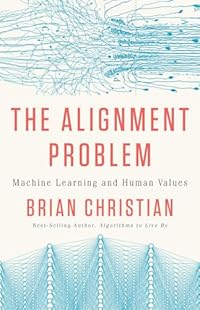Status
Call number
Collection
Publication
Description
"A jaw-dropping exploration of everything that goes wrong when we build AI systems-and the movement to fix them. Today's "machine-learning" systems, trained by data, are so effective that we've invited them to see and hear for us-and to make decisions on our behalf. But alarm bells are ringing. Systems cull résumés until, years later, we discover that they have inherent gender biases. Algorithms decide bail and parole-and appear to assess black and white defendants differently. We can no longer assume that our mortgage application, or even our medical tests, will be seen by human eyes. And autonomous vehicles on our streets can injure or kill. When systems we attempt to teach will not, in the end, do what we want or what we expect, ethical and potentially existential risks emerge. Researchers call this the alignment problem. In best-selling author Brian Christian's riveting account, we meet the alignment problem's "first-responders," and learn their ambitious plan to solve it before our hands are completely off the wheel"--… (more)
Media reviews
User reviews
This book is probably the best intro
It's also very detailed, screaming at the reader "I did the research, I went where no one else dared to go!". It will not only present you with an intriguing ML concept but also: trace its roots to XIX century farming problem or biology breakthrough, present all the scientist contributing to this research, explain how they met and got along, cite author's interviews with some of them, and present their life after they published their masterpiece, including completely unrelated information about their substance abuse and dark circumstances of their premature death. It's written quite well, so there might be an audience who enjoys this, but sadly I'm not a part of it.
If this book was structured to touch directly the subject of the alignment problem it would be at least 3 times shorter. It doesn't mean that 2/3 are bad - most of it is informative, some of it is entertaining, a lot seems like ML things that the author found interesting and just added to the book without any specific connection to its premise. I really liked the first few chapters where machine learning algorithms are presented as the first viable benchmark to the human thinking process and mental models that we build. Spoiler alert: it very clearly shows our flaws, biases, and lies that we tell ourselves (that are further embedded in ML models that we create and technology that uses them).
Overall, I enjoyed most of this book. I just feel a bit cheated by its title and premise, which advertise a different kind of book. This is the Machine Learning omnibus, presenting the most interesting scientific concepts of this field and the scientists behind them. If this is what you expect and need, you won't be disappointed!
